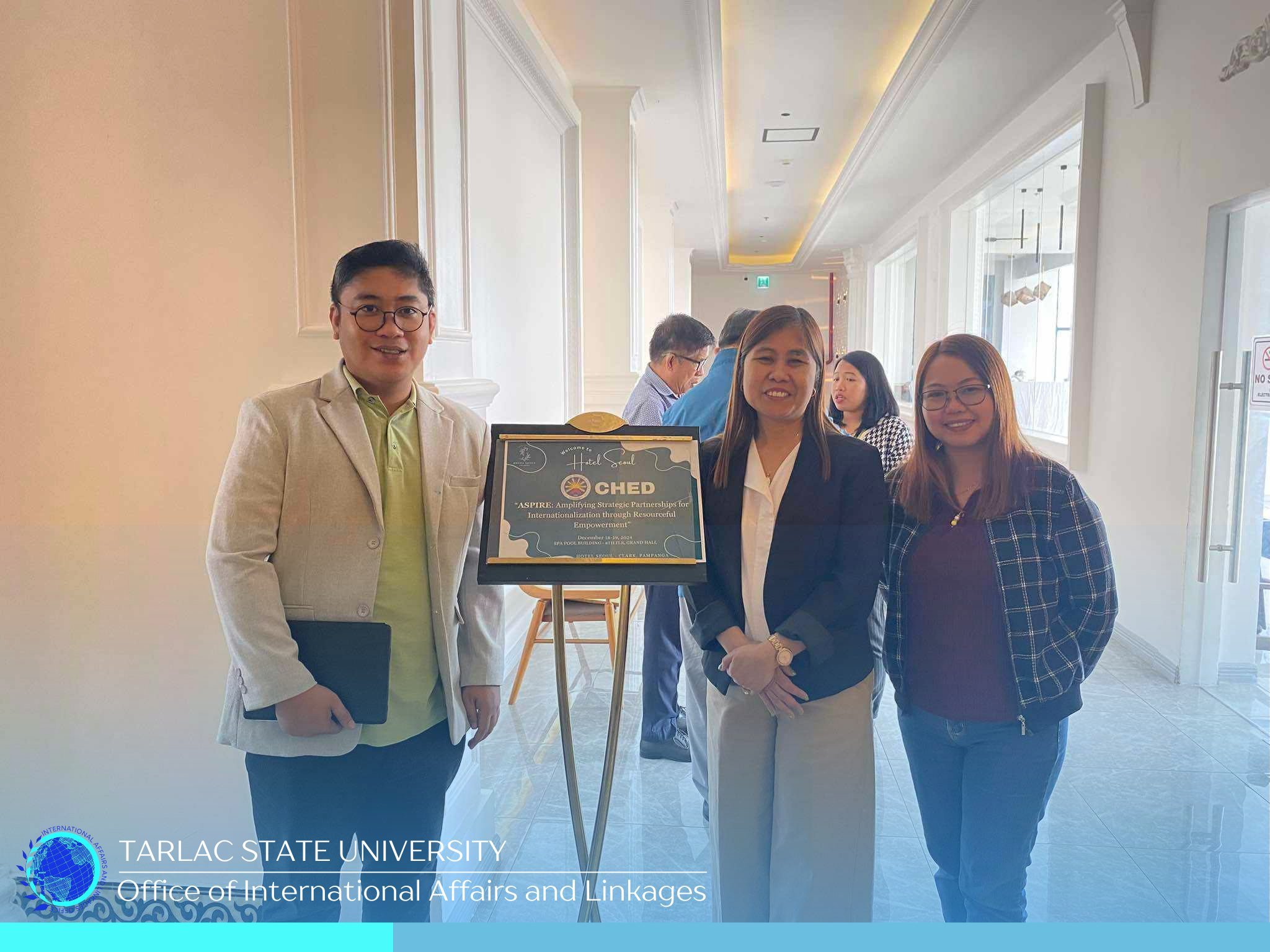Friday, 28 February 2025
TSU-CPAG Expands Global Footprint Through Research and Collaboration with ASPA
by Dianne Llorca
Back
Tarlac City, Philippines—February 2025—The College of Public Administration and Governance (CPAG) of Tarlac State University (TSU) has made another step forward in expanding its global academic footprint. In partnership with the American Society for Public Administration (ASPA), the college continues efforts toward international presence and academic engagement that respond to evolving needs and demands of public service and governance in the 21st century.
In the KeepingCurrent Webinar Series brought by ASPA, another much-awaited international webinar was gratefully co-sponsored by the TSU titled “Building Resilience, Agility, and Trust: The Neo-Weberian State as a Referential Model” on February 28, 2025, from 2:00 AM to 3:00 AM. It puts the Neo-Weberian State Administration and Brazil's administrative reform under the spotlight with its specific focus on democratic governance, building up respect for government institutions, and better service delivery. Prof. Gabriela Lotta, a keynote resource person and one of the most eminent scholars in public administration and policy at the Getulio Vargas Foundation of Brazil, was renowned for her public policy, bureaucracy, and governance research, whose views resonated with the TSU-CPAG faculty members and students, who actively joined in the webinar.
Furthering the institutional representation globally, ASPA invited the Dean of CPAG, Dr. Edwin T. Caoleng, as both presenter and moderator to the prestigious ASPA Annual Conference, held from March 28 to April 1, 2025, at The Mayflower Hotel, Washington, D.C.
Dr. Caoleng presented his research entitled "The Role of Public Administration in Advancing Smart City Initiatives," which looked into how governance institutions can serve as catalysts for digital innovation, participatory governance, and sustainable urban development. His paper highlighted the ever-increasing role of public administration in facilitating receptive and future-ready cities and was instrumental in taking the discourse of smart governance one step further. The presentation aligns with SDG 11: Sustainable Cities and Communities and also demonstrates how TSU-CPAG can harness academic strength toward international engagement in policymaking and governance platforms.
The theme of this year's ASPA was "Not Robots Yet: Keeping Public Servants in Public Service," gathering top scholars and practitioners who addressed core and urgent issues, including public sector ethics, trust in government, equity, and digital transformation.
Such international endeavors suggest an enormous leap for the TSU-CPAG in its growing aspiration toward becoming a globally competitive, research-driven academic institution. Therefore, through such involvements and platforms, the college gradually builds up its name and becomes one of the active actors in the international public administration community. By strengthening its cooperation with ASPA, TSU-CPAG not only advances SDG 17: Partnership for Goals but also reaffirms its commitment to the development of innovative, principled, and future-ready public service leadership capable of confronting the tough challenges of 21st-century governance.
